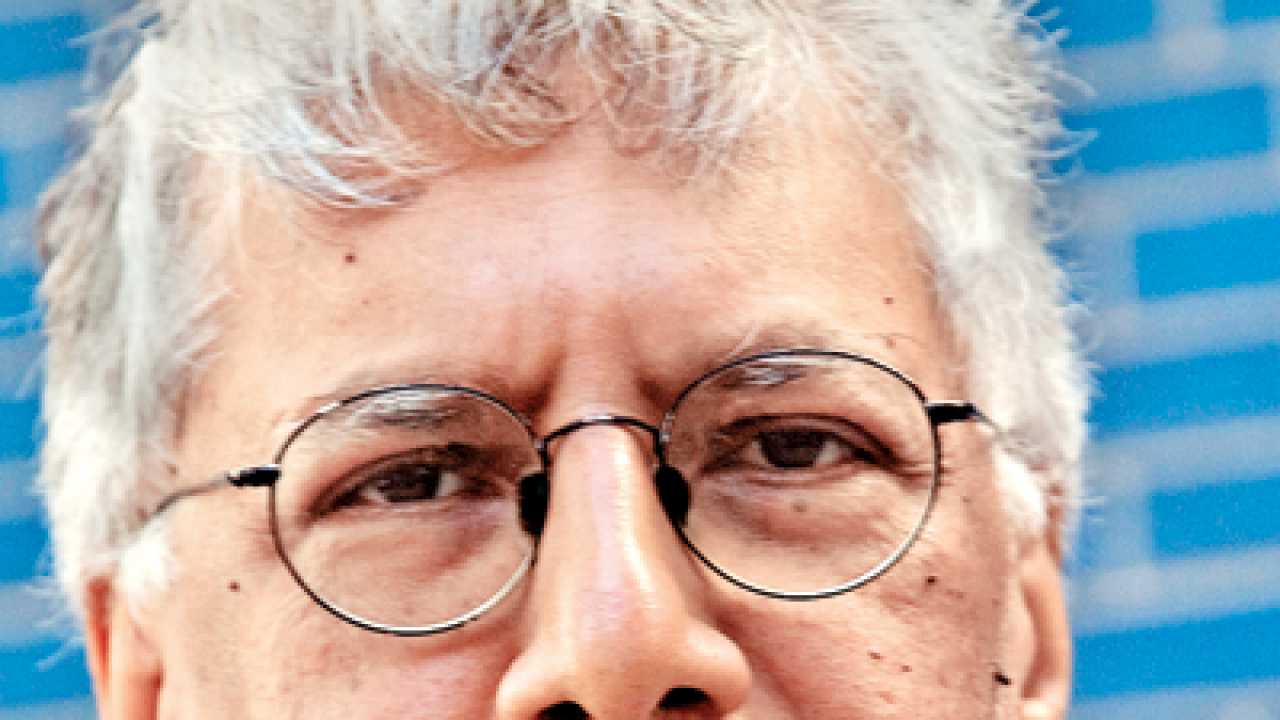
Bangalore-born, New York-based Vijay Seshadri may have won the 2014 Pulitzer Prize for his fourth poetry collection, 3 Sections, but his prose doesn't fall far behind. At the heart of this award-winning compilation is Pacific Fishes of Canada, a meditative, political essay on the commercial fishing industry and maritime boundaries spanning 13 pages.
In the run-up to an Zee Jaipur Literature Festival 2015 , Seshadri, who also teaches at Sarah Lawrence College in New York, tells JBM why the experimentation of 'computer-driven poetry' isn't anything new, and whether or not poetry can be taught. Edited excerpts:
You've spoken about having many selves and 'trans' identities. Do you think plurality of the self crucial for poetry, as compared to prose?
I don't think a plurality of selves is necessary to making poems, or literature generally. Although it helps, certainly with fiction, to be able to inhabit the lives of others as if they were your own. I do think we contain multitudes, and that that recognition is important to modern, as opposed to pre-modern, experience. It's also crucial to living a fully moral life. If you can't identify with people very different from you, your humanity is deeply crippled, and you will be prone to doing evil.
Do you approach your writing with a certain sense of detachment, like you did when you employed a rhetorical resource (your wife) for Knowing?
Aesthetic distance and rhetorical distance aren't really the same as detachment. The purpose of the poem is to get as close as possible to the subject. In Knowing, my wife knows the person being talked about rather than myself—even though my wife only knows the protagonist because I know her, she's my friend—because I felt it intensified the emotional intensity of the poem to create a distant point of view.
I've read that romantic literature doesn't figure highly in your reading list. Does this extend to Romanticism as a whole?
I don't remember that quote, but it probably has to do with popular fiction, sentimental fiction. I'm tremendously influenced by literary Romanticism - Wordsworth especially, and Blake, and late Romantics like Yeats. Formally, my allegiances tend toward a certain classicism, but a classicism formed on the basis of the Romantic revolution. I also love the great Romantic prose writers. Coleridge and Hazlitt particularly. Hazlitt created the prose essay tradition in which I write.
You're also fond of ancient texts like the Bhagavata Purana, and Urdu poetry. Any Urdu poet whose works you're particularly fond of?
I know the great modernist Urdu poets - Faiz, NM Rashid, Miraji, Sahir Ludhianvi - a bit. The Urdu poetry I'm more familiar with is classical Urdu poetry, and I love it for its formal rigour, its geometry, The inventiveness, gracefulness, complexity and choreography in small linguistic spaces is quite extraordinary. A poetry of surpassing elegance and urbanity.
You've never fancied yourself as tech-savvy. Is this a conscious choice? Is technology a boon or bane for contemporary poetry?
I'm perfectly capable, I think, of understanding technology, and I do. I don't know if that means I'm tech-savvy or not. Technology is not important to my work - or rather, old-fashioned technology is sufficient (pens, paper, books are all also technology), and as far as poetry is concerned, technology doesn't matter one way or another. The computer-driven poetry of 'experimental' writers these days - the mash-ups, the flarf poems - isn't new. There was just that kind of experimentation long before people were using computers.
What concerns you about contemporary poetry?
I think our language and rhetoric are somewhat impoverished because we're not sufficiently literary. Poetry is too subject to the demands of a momentary political climate and current political exigencies. Subject matter is given too much of a privilege over the creation of concrete reality through the expressive power of words, sentences, lines that are musical. Music generally, understood either in the sense that Pound meant it or that Mallarme and the Symbolists meant it, seems to be disappearing from poetry.
One of the panel discussions you're participating in for JLF is '52 ways to look at a poem'. Considering how subjective poem interpretation is, do you think poetry can be taught? Or is it something that's imbibed?
Poetry is an intellectual activity, as rigorous as science and as capacious as philosophy. It needs to be studied to be understood, to be appreciated. You can listen to a poem, or, for that matter, hear a piece of great music or see a great painting, and experience an immediate effect, just like you can marvel at a stray scientific fact. That is just the beginning of the journey, though, the beginning of knowledge. The rest of it requires concentration, intellectual concentration and sensitivity- imaginative sensitivity, which is also the result of study and practice, the study and practice of the soul. You can't, for example, really appreciate a composer like Bach without understanding, at least in the basic way, what counterpoint is. And to understand counterpoint, one has to feel and imagine. One also has to think. It's the same with poetry - at least great poetry - in any tradition.
Lastly, what are you working on, apart from your memoir?
I'm writing poems, fitfully.